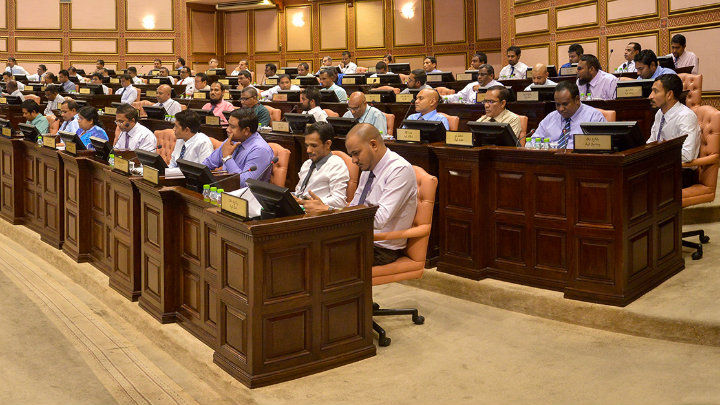Majlis approves bill to let candidates with criminal records run for councils
MPs voted 46-19 to amend the 2010 local council elections law to allow individuals convicted of graft, bribery, drug abuse, and offences with punishments prescribed in Islamic shariah to contest three years after being pardoned or completing their jail sentence.

08 Feb 2017, 09:00
The People’s Majlis approved Wednesday contentious legal changes to pave the way for individuals with criminal records to contest in April’s local council elections.
MPs voted 46-19 to amend the 2010 local council elections law to allow individuals convicted of graft, bribery, drug abuse, and offences with punishments prescribed in Islamic shariah to contest three years after being pardoned or completing their jail sentence.
The law previously barred individuals convicted of these crimes from contesting even if they had been pardoned or released.
The amendment bill proposed by MP Ali Mohamed of the ruling Progressive Party of Maldives was passed into law a day after it was introduced to the parliament, debated, and sent to the national security committee for review.
Become a member
Get full access to our archive and personalise your experience.
Already a member?
Discussion
No comments yet. Be the first to share your thoughts!
No comments yet. Be the first to join the conversation!
Join the Conversation
Sign in to share your thoughts under an alias and take part in the discussion. Independent journalism thrives on open, respectful debate — your voice matters.




